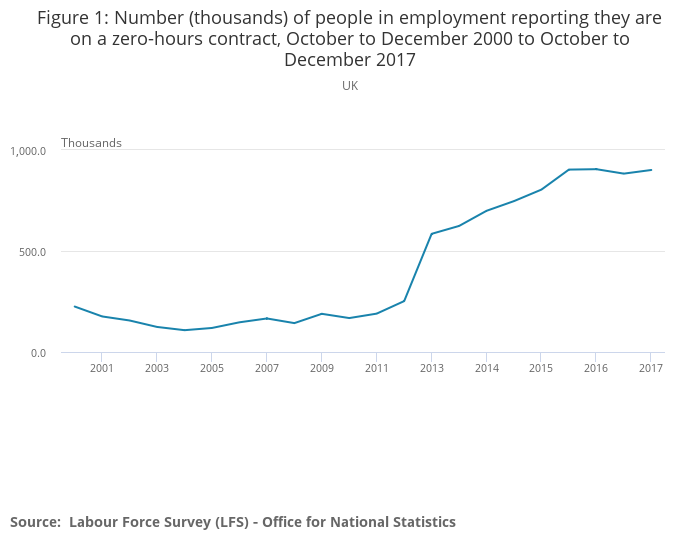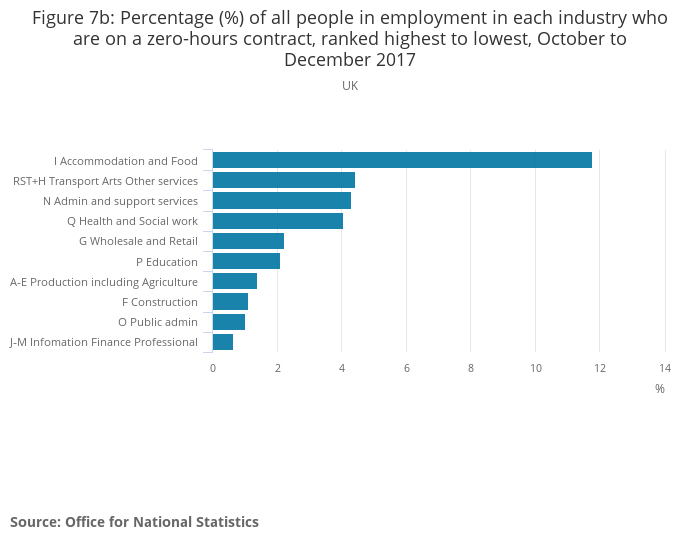The Labour Force Survey (LFS) for the period October to December 2017 reported that there were 1.8m contracts that did not guarantee a minimum number of hours in the year to November 2017. The equivalent number in the years to November 2016 was 1.7m.
While this represented an increase of 100,000 contracts, the percentage of overall contracts that were zero hours remained unchanged at 6%.

According to the LFS, the number of people employed on zero-hours contracts in their main job during October 2017 to December 2017 was 901,000, representing 2.8% of all people in employment.
These most recent findings revealed that accommodation and food was the industry sector with the largest share of workers on zero hour contracts, with more than one in 10 employers not guaranteed hours.

UKHospitality chief executive Kate Nicholls commented: “Flexible working can provide useful opportunities for both employees and employers, particularly those employees looking to fit work around other activities such as studying.
“The important thing is to ensure that these contracts are not abused by employers and we have seen no evidence to suggest widespread exploitation of workers in the hospitality sector.”
Andy Tighe, policy director at the British Beer and Pub Association (BBPA) added: “Flexible, part-time and temporary workers help pubs to manage fluctuations in demand, and in some cases, zero-hour contracts are used. Many employees value the flexibility they can gain from being on a zero-hours contract.
“Equally it is important that the arrangement works for both parties and that employers do not misuse zero hour contracts. The BBPA supported the removal of exclusivity clauses in such contracts and any abuse of the system must be addressed.”
The highest number of zero hour contracts recorded by the survey was 2.1mn in March 2015 – when they accounted for 7% of contracts.
The report can be found in full here.
